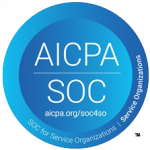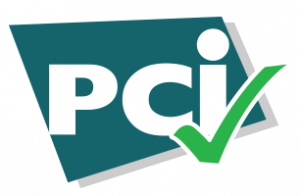
“Debt collection” and “scam” are often used in the same sentence unfairly. In truth, people get behind on their bills sometimes, and someone has to call to help work out a payment plan to help the organization recover the money that is owed to them.
Unfortunately, it is an area rife with scams. More unfortunately, scammers tend to get bolder during economic downturns – like the one we are experiencing as a result of the COVID-19 pandemic. So how do you know if the person calling you about an old bill you’d forgotten is legitimate or trying to steal your credit card number? The Consumer Financial Protection Bureau (CFPB) has put together a short video to highlight the warning signs of a debt collection scam, and we’ve got a few tips for you as well:
The Caller is Making Threats
Most commonly scammers will try to threaten unsuspecting victims with jail time to encourage them to pay. Whether they work directly for the company to whom you owe money or for a third-party collector, the person calling is NOT allowed to threaten you in any way. If he or she mentions jail, prison, an arrest warrant, or something along those lines, it is a scam.
They Claim to be from the IRS
As the IRS says on its website, “The IRS doesn’t initiate contact with taxpayers by email, text messages or social media channels to request personal or financial information.” Furthermore, watch out if they direct you to IRS.gov to verify that it really is them. Some scammers are using numbers similar to those used by IRS Taxpayer Assistance Centers. (Read more about IRS Tax Scams.)
Won’t Answer Questions
If you owe a company money, the caller should be able to answer questions about the debt, the company, and more as well as fully explain who they are. In the U.S. you also have the right to receive notice by mail to confirm a debt you owe, so if you’re unsure about the debt be sure to ask for that confirmation. If they refuse, it’s not the real deal. If you don’t remember a debt, the caller might be making it up. Of course, it’s also possible you forgot, but in that case, it’s OK to hang up and verify it.
Request Personal Identifying Information
While a legitimate debt collector may ask you about payment, they will verify the information they already have on file for you. This includes account numbers, date of birth, and Social Security Number. Genuine collection agencies should share with you details about your account; such as the name of the original creditor, date of service or delinquency, and where you can mail your payment if you don’t want to make it over the phone.
Apply Pressure
The caller pressures you to make a decision immediately. Scammers race against time; the longer they run a scam, the higher their chances of getting caught or shutting it down before they get caught. Their goal is to get money from you as quickly as possible – especially during that first call. A true debt collector or even a good salesperson will give you time to consider your options and not pressure you.
Tips for Managing Potential Scam Calls
- Don’t call an unknown number back if the caller didn’t leave a voicemail.
- Don’t confirm account information; some scammers will get you to say “OK” to claim you approved a charge.
- Telemarketers must tell you who they are and why they are calling right upfront. Hang up if someone doesn’t do this. They must also call between 8 a.m. and 9 p.m. If it’s earlier or later, hang up or ignore the call.
- Anything that’s “free” but requires you to pay something is a scam.
- If you suspect a communication is a scam, hang up the phone without further communication. If the communication is via email, refrain from clicking on any links and flag the message as SPAM to prevent further intrusion into your inbox.
- Get more tips for handling calls from the FTC.
Tips for Confirming Your Debt
Business owners must contact consumers somehow to get payment, so you may occasionally get a call about debt. If you receive a call about a bill that you do not remember, confirm your debt by checking your credit report online. There, you should be able to see outstanding items you owe if the delinquency has been placed on your credit report.
Of course, not all organizations credit report, and most – if following fair debt collection practices – will contact you several times before it gets to that point. Remember, you can always request confirmation of a debt in writing, which will give you time to do some research into the claim. Never be afraid to ask more and more questions if you feel as though you are potentially being scammed. You have the right and responsibility to request validation of your debt from the original creditor, requesting that validation will confirm or deny your suspicions about the agency calling you. The Better Business Bureau is an excellent resource for confirming the validity of a business if you still are wary.






